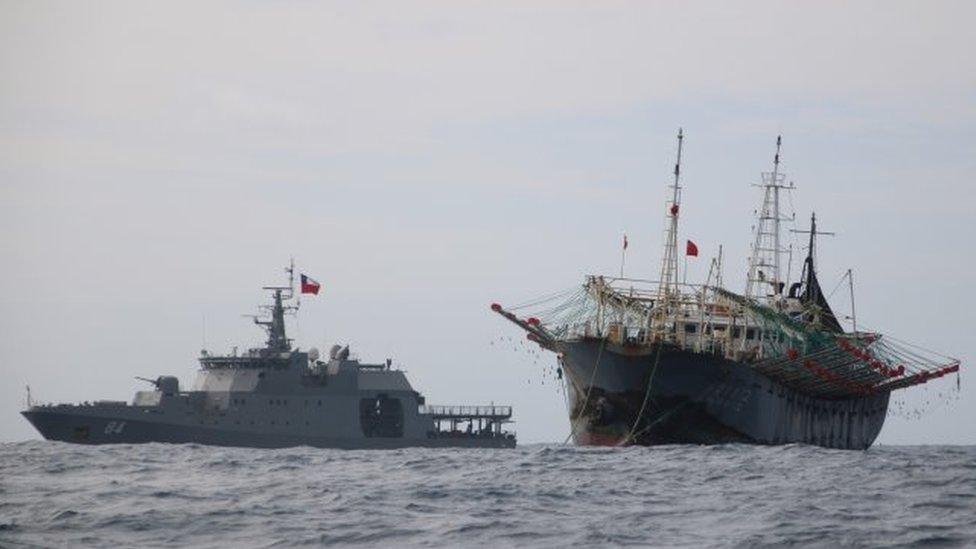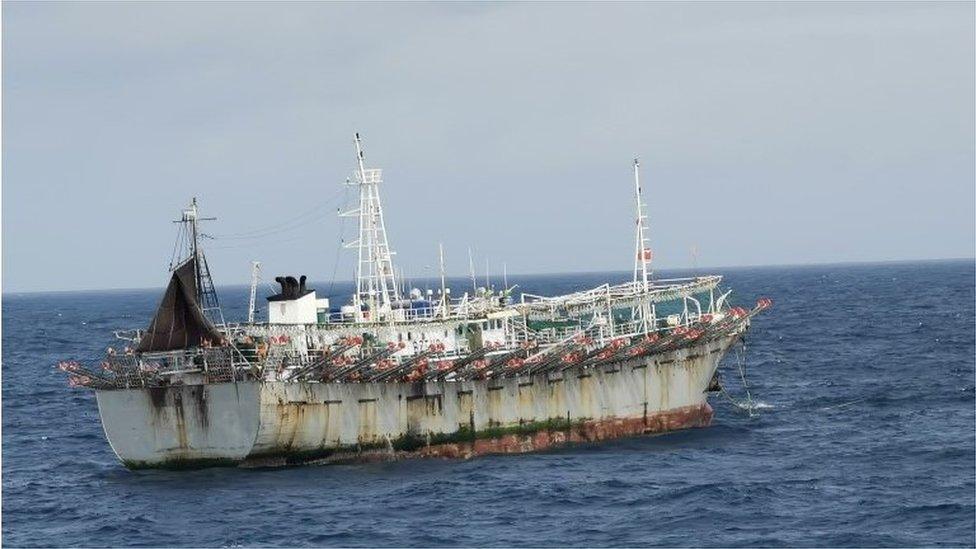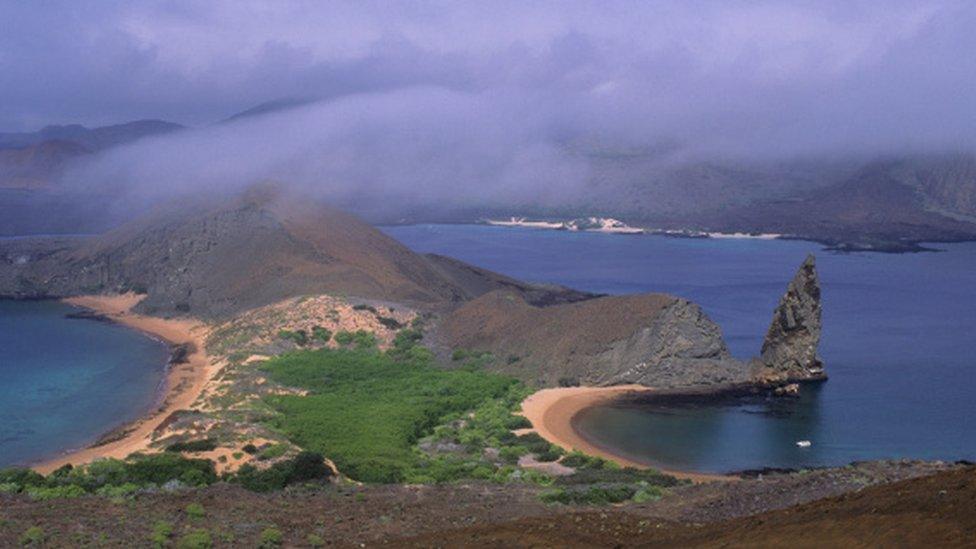Chilean navy ships monitor huge Chinese fishing fleet
- Published

Chilean navy vessels (left) are keeping a close watch on Chinese fishing boats
The Chilean navy says it is closely monitoring 11 Chinese fishing vessels in its exclusive economic zone (EEZ).
A Chinese fishing fleet has been accused by conservation group Oceana of "pillaging" the waters off the Galapagos Islands for squid.
The fleet is made up of more than 400 fishing vessels, of which 11 are currently in Chile's EEZ, according to the Chile's navy.
Chile said last month it would take measures to prevent illegal fishing.
Anger as fleet moves south
The large Chinese fleet caused concern when it arrived in waters off the Galapagos Islands, a Unesco World Heritage site which forms part of Ecuador, in July.

You may want to read:

The Chinese embassy in the Ecuadorean capital, Quito, said the government had a "zero tolerance" policy towards illegal fishing.
China also proposed a moratorium on fishing near the Galapagos between September and November.
But when the Chinese fishing vessels moved south to waters off Peru, they again sparked anger - this time among Peruvian fishermen worried that the large Chinese fleet would overfish the squid they rely on for their livelihood.
Oceana, the world's largest ocean conservation group, alleged that it had documented instances in which some of the Chinese vessels had disabled their public tracking devices, which Oceana says could be a sign that they were conducting "illicit activities".

This boat, pictured in international waters near Chile's EEZ, is one of hundreds in the fleet
Last month, four South American countries with Pacific coastlines joined forces to combat illegal fishing.
Chile, Colombia, Ecuador and Peru issued a joint statement saying they would work together "to prevent, discourage and jointly confront" any attempts to illegally fish. They did not mention China or the Chinese fishing boats in their statement.
Chile's navy said it was monitoring the vessels in its EEZ. Under the United Nations Convention on the Law of the Sea, coastal nations have jurisdiction over the natural resources within their EEZ, meaning that the Chinese boats are free to pass through the waters but not to fish.

You may want to watch:
Local fishermen in their small boats often clash with huge foreign trawlers
- Published29 July 2020
